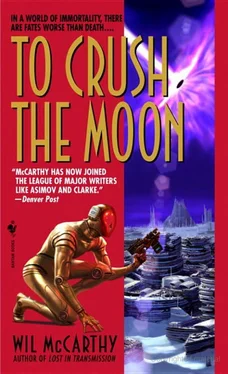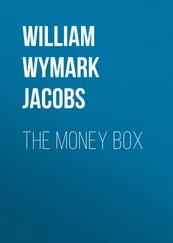“Sir, that would make you a Reviewer. I’m not sure you’ve got the background for that.”
Ouch. “Hmm. No, I don’t suppose I do. I became a revolutionary because there was nothing else for me here. All the good jobs were filled with people too competent to ever leave them. And that was a long time ago. Today, I’m a thousand years more foolish!”
A faint smile acknowledged the joke, but then she said, “There’s nothing wrong with being an Appreciator, sir. It’s honest work. Most people don’t have the eye for it.”
“Hmm. Well. I suppose I’m flattered, then.”
“I do need to put something down for your specialty. Shall we say, residential architecture?”
“Oh, I’ve done residential,” Conrad said. “Single- and multifamily. Also industrial, civic, monumental, and certain infrastructure projects, including roads and tuberails. But lots of people were doing that. The only specialty I can claim is in transatmospherics. I once built an orbital tower a thousand kilometers tall.”
Sandra the social worker blinked at that. “Personally? With your own two hands?”
It was Conrad’s turn to laugh. “Yeah, I’m magic. I had a crew, miss. Twenty-five men and eleven hundred robots.”
She blinked again, then glanced down at her sketchplate and said, “Specialty: transatmospheric architecture with supervisory experience.” When she looked up, the condescension was gone. “You may qualify for more than Basic Assistance. It could take a few weeks to sort out, though.”
“I’m a patient man,” he said, “except where my wife is concerned. For that matter, I wouldn’t mind seeing my parents, whom I haven’t laid eyes on in a thousand years. And the sky, the wind . I tried to go outside, here, but the door wouldn’t open. It said I’d freeze to death in ten minutes. I said I’d be back in two. I’ve lived on polar caps before. But as you say, I’m still a prisoner.”
“We’ll be on our way in a few minutes,” Sandra assured him. “But first, shall we talk about your wardrobe options? The right appearance could make a big difference in your prospects.”
Conrad laughed again, pinching the hospital gown he’d been wearing since before they revived him. “Are you saying this is the wrong appearance? I’m shocked. Miss, we wore clothes in the Barnard colony, too. Give me a fax machine and I’m sure I can work something out.”
“You’ll have access to one,” Sandra said cautiously. “You won’t own it.”
“Good enough,” Conrad said. And then, with a burst of wonder: “I’ll be able to travel anywhere in the Queendom, won’t I? I can eat whatever I want, and I’ll never get sick or geriatric again. I’ll be immorbid. I’ll be rich .”
Sandra shook her head at that, and dutifully burst his bubble. “Don’t get your hopes up, sir. You’ll be living on Basic Assistance, in a Red Sun emergency shelter in one of the hottest, wettest climates on Earth. You’ll be in the bottom percentile for personal income, with sharp travel and plurality restrictions.”
“Plurality!” Conrad chortled. “I can make copies of myself. I can be twins, triplets!”
“You can be twins,” Sandra said, “but it just means your energy budgets will go half as far. There’s no way of knowing how long you’ll be on assistance, sir, and you need to prepare yourself for the reality of it.”
Conrad was a patient man, and a kind one, but this went too far. He’d had enough of these self-important children telling him what to do, what to think. “Miss,” he said coolly, “have you ever walked out of a blizzard with a broken collarbone? Have you spent a hundred years aboard a starship, or fought off a team of angry asteroid miners? I once watched my best friend’s daughter cut in half, while her image archive was permanently erased. I’ve stood knee-deep in the rot of a failed ecology, and handled a city’s worth of corpses. I’ve betrayed the trust of a king, and lived. So don’t tell me about hardship, all right?”
“I’m… sorry,” she said.
And before she could say anything else he nodded once, trying hard to squelch his anger. “Thank you. Your apology is accepted. Now take me to my wife, please .”
Chapter Six
in which a community is overrun
Faxing from one place to another had been a perfectly ordinary feature of Conrad’s youth. He’d done it several times a day, with no more thought than he’d give to stepping through an ordinary doorway. Sure, the body was destroyed and then reassembled as an atomically perfect copy, but what of it? The atoms in your body were temporary anyway—constantly churning, moving, departing and being replaced. This thing called “life” was just a standing wave in a flowing river; it endured across the smaller patterns that came and went. Only a deathist would obsess about the higher meaning of it all.
But that was a long time ago. Conrad had last seen a medical-grade print plate in the autumn days of Sorrow, and the last person to step through it—Princess Wendy de Towaji Lutui Rishe—had paid a high price, dying elaborately from an undiagnosed glitch in the system. Even that memory felt remote, far removed from this time and place, but its lessons lingered in the bones. Sandra led Conrad to the nearest fax machine with no further difficulty, only to find him balking at the threshold of the gray-black, vaguely foggy-looking rectangle of its print plate.
“Are you all right?” she asked.
And what could Conrad say, who’d just gone on about his impatience, his courage in the face of hardship? “I’m… fine, thank you. It’s just been a long time since I traveled this way.”
“It doesn’t feel like much,” she said, shrugging. “Just a little tingle as you go through.”
“I know, dear, but there’s more to it than that. I’ve been to the stars and back, and I’ve lost little bits of myself here and there along the way. One grows…” Cautious? That was hardly the word for a man who’d defied martial law, who’d stolen Barnard’s single most tangible asset, who’d plowed a course through rubble fields and smacked head-on into trouble, bringing his closest friends along for the ride. “One thinks about these things more and more. Right and wrong, life and death, freedom and servitude. Every decision kicks up these consequences that follow along for the rest of your life. Which is forever, right? It sometimes pays to take a moment and think.”
Sandra had apparently seen her share of wackos on the job, and took this comment with equanimity. “I can arrange for other transport, sir. If your beliefs require it, I may even be able to waive the associated fees.”
“No,” Conrad said, for his eagerness outweighed his caution by several orders of magnitude. “I’m done thinking. Let’s go.”
But still, he let Sandra walk through the plate first. It was like watching someone step through paint; the surface parted around her with a faint crackle, and a glow not unlike the southern lights in the cold Antarctic sky. She shrank into it and was gone. Well, here was the heaven he’d bought for Sorrow’s dead; taking a breath, he stepped in after her.
And truly, there was no real feeling to it. It was a bit like falling and a bit like drowning and a bit like a static shock all over his body, but mostly it was nothing much. Stepping through paint would at least have been cold and sticky. And there was this to be said for the process: on the other side there was sky.
He came through, right behind Sandra, in an open-sided, glass-domed atrium the size of a soccer field. There were no trees, but there were people sprawled out on blankets, as in a park. And like a park, the dome’s floor was covered in short grass of a green so bright it hurt Conrad’s optic nerve. There was nothing like this in Barnard; Sorrow’s vegetation favored dark browns and ambers, with the occasional splatter of deep olive, under a sun much redder than Sol. The skies of Sorrow ranged from aquamarine to yellow-gray, and its clouds were hazy or feathery or even striped as the warm, slow jet stream skipped on and off of the cooler, denser layers underneath.
Читать дальше












